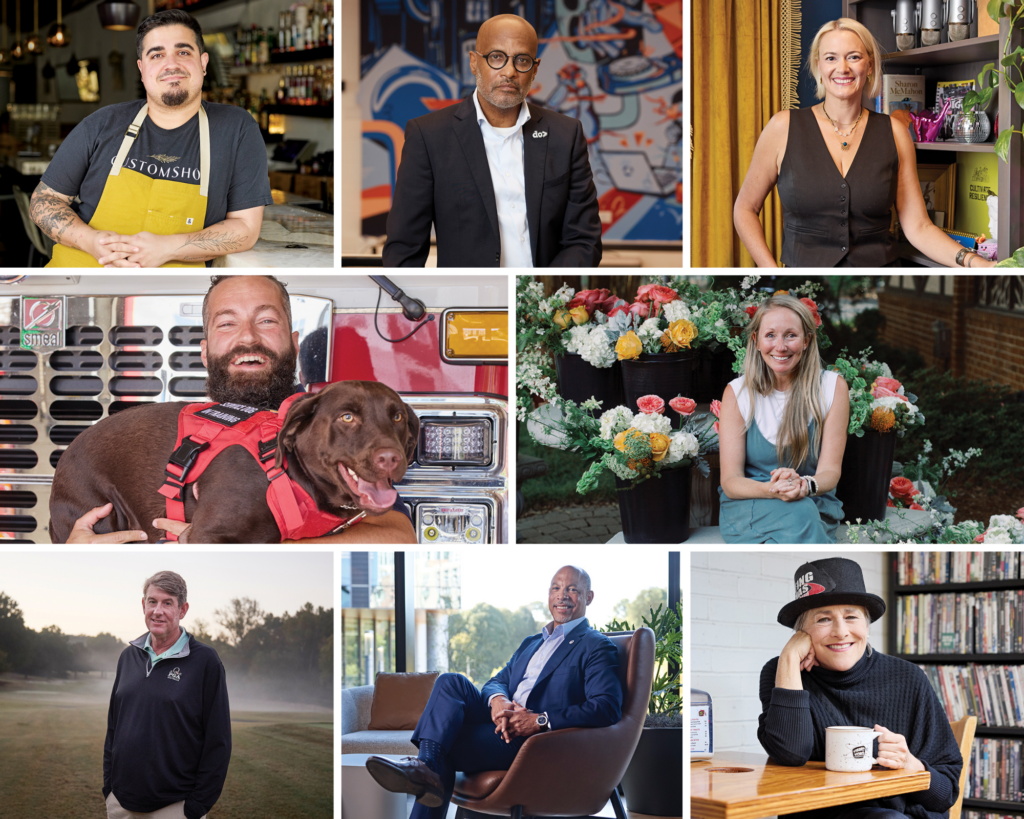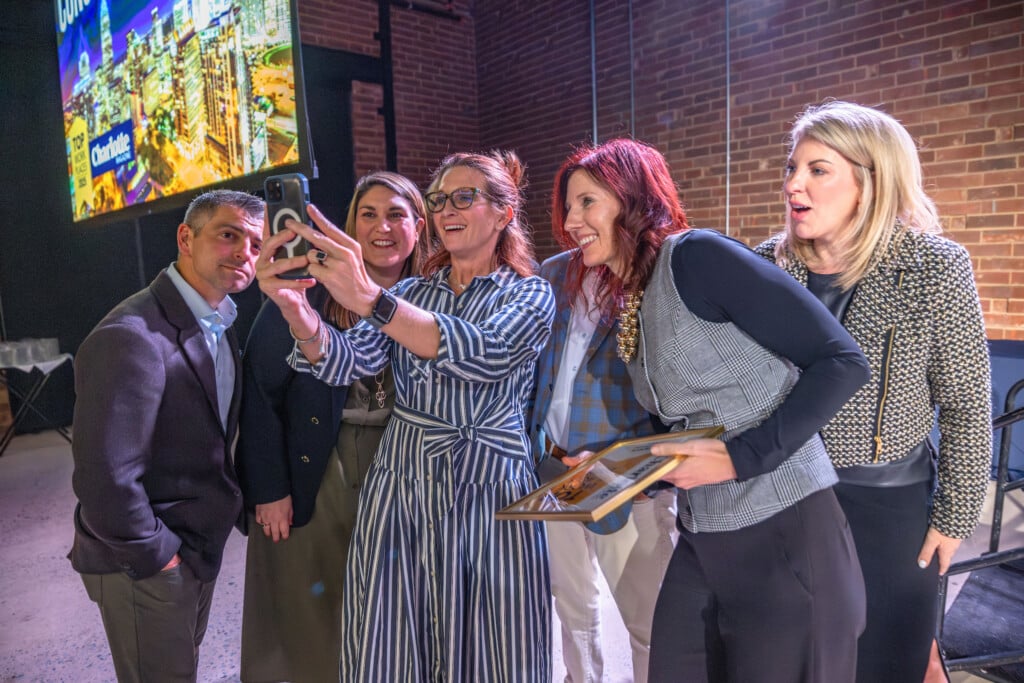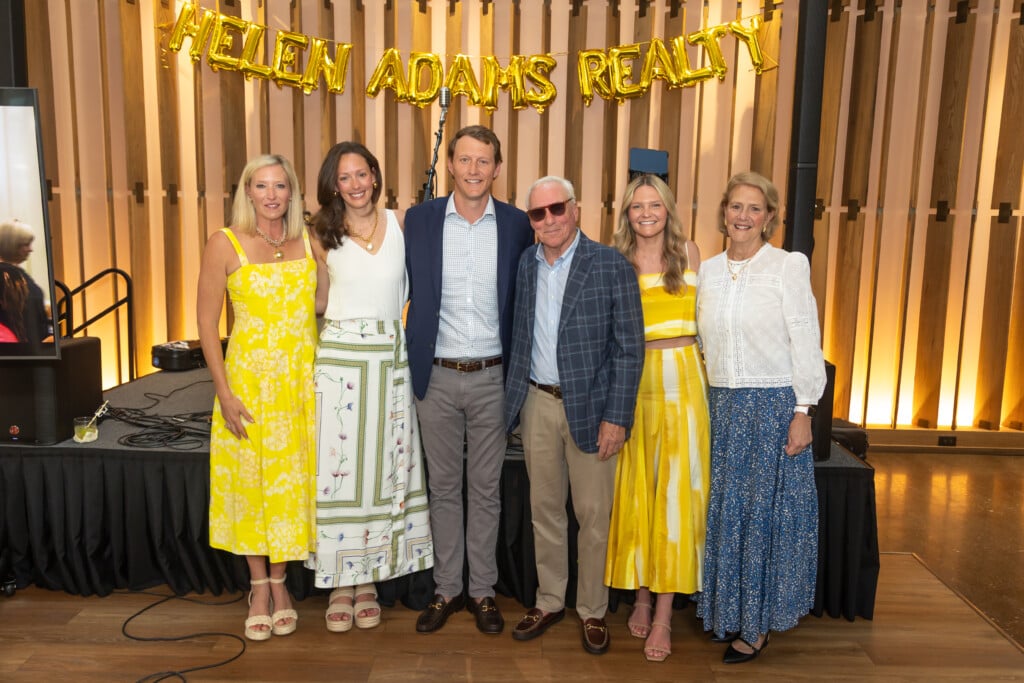Springclean Combines Fashion, Creativity, and Sustainability
Inside CT Anderson's nonprofit fashion boutique

CT Anderson was interested in sustainability long before it became a corporate buzzword. “Caring for people and the planet is just who I am and how I think,” she says. “I created a career that didn’t exist. Now people have Ph.D.s in sustainable finance.”
As founder of Springclean, a nonprofit fashion boutique that sells vintage and upcycled clothing, she’s diverted more than 6,000 pounds of textiles from landfills. She launched Springclean in her home six years ago before moving to Innovation Barn; this spring, she expanded to a 1,000-square-foot space on the ground floor of Kinship, the new live-work units at Camp North End. The boutique also accepts clothing donations, offers on-site alterations, and has industrial-grade and tabletop sewing machines for events and workshops where attendees learn to repair and upcycle textiles.
The fashion industry accounts for 10% of global greenhouse gas emissions, and 85% of textiles go to dumps each year, according to Business Insider. Anderson, 48, saw an opportunity to create jobs and keep clothes out of landfills. “The average person throws away 70 pounds of clothes a year,” she says. “We’re literally throwing money away. If I’m talking to a funder or stakeholder, I say, ‘I create jobs for people to reuse materials.’ But if I’m going with buzzwords, I say, ‘You clean out your closets. We make beautiful things.’”
She turns donated upholsteries into pillows, vinyl banners into tote bags, and last season’s Hornets T-shirts into teddy bears. She can add gold tuxedo stripes and banded ankles to a basic pair of slacks or remove a sequin overlay from a vintage dress to create a sparkly top. Volunteers help sort, cut, and sew, and Anderson works with more than 60 local artists to come up with new designs. Springclean aims to divert 90% of what it collects from landfills and provides local artisans with gig economy jobs, “as if Uber and Etsy had a baby.”
Springclean is the culmination of decades of work on environmental and social issues. Anderson studied political science at Howard University and earned a graduate degree in urban policy at The New School in New York City. Over the past 25 years, she’s worked in real estate development, sustainability for Walmart, and sustainable finance for Bank of America. Her job as director of sustainability for Belk changed her view of the apparel supply chain. “I am really into fashion, and I realized buying all this stuff every week wasn’t helping what I do with my day job,” she says. “I wanted to find a place where I could donate my items and know they weren’t going to be shipped overseas.”
She toyed with the idea of a nonprofit for a few years and considered calling it Next Round until a fateful trip to the grocery store in December 2018. “This guy said, ‘I need to go spring-clean my spices when I get home.’ He used ‘spring-clean’ as a verb! I thought, That’s my name. And the web domain was available. That $1,000 investment has turned into this.”

Anderson works with more than 60 local artists, including Lee, who designed the “Love Wins” fiber art. She made a handbag prototype from a Bank of America advertising sign.
Anderson launched Springclean in April 2019. She accepts gently used apparel and sewing equipment as well as unclaimed clothing from dry cleaners and unsold garments from department stores. Each month, she hosts a Sip & Sew event where guests can come for charcuterie and wine and learn to make something with upcycled fabric. Later this year, she’ll open a second location in Raleigh.
Anderson admits she didn’t know how to sew when she started Springclean—she went on Facebook Marketplace and hired a woman to teach her—but giving old things new life is intuitive for her. “In grad school, I was telling my grandfather what I did for a living,” she says. “He was born in 1925 and was like, ‘You get paid for common sense?’ It was just a part of the ethos of my upbringing.”






